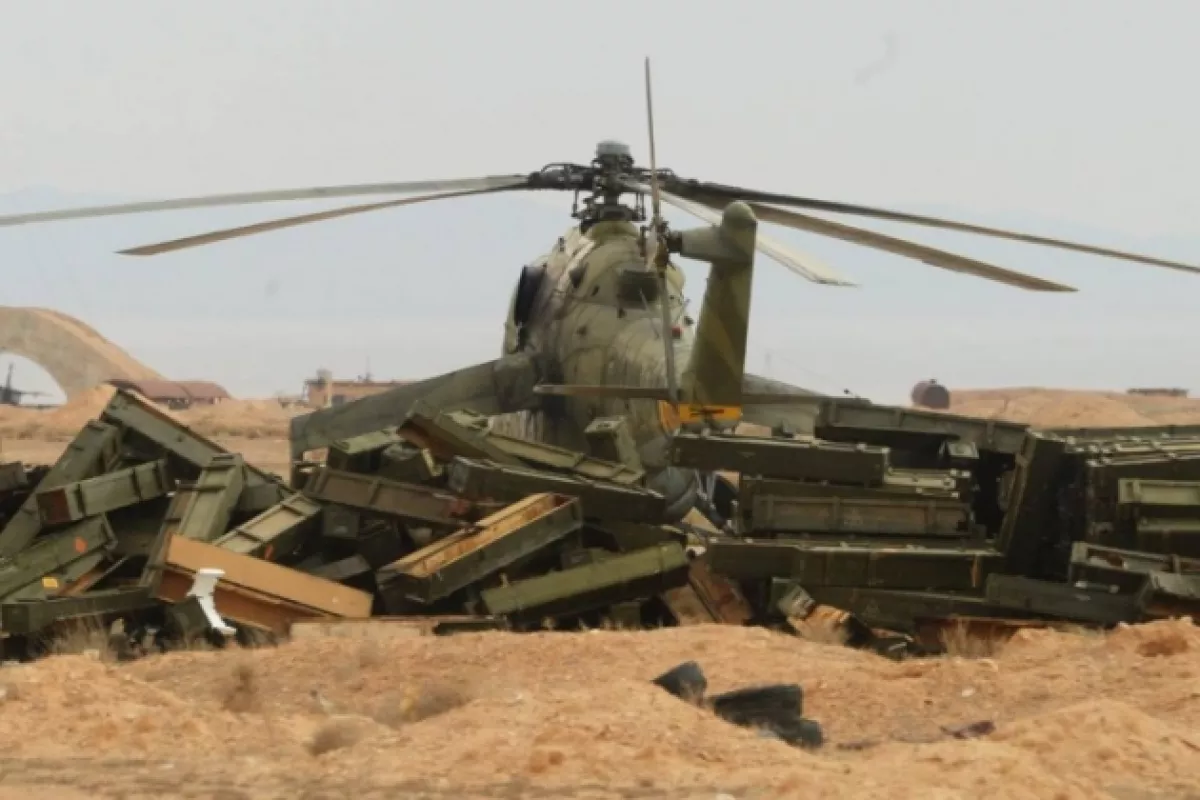Media: Tiyas airbase exit marks turning point in Russia’s military presence in Syria PHOTO
Russian troops have completed their withdrawal from Syria's largest airfield, Tiyas (also known as T-4 or Tifor), situated between Homs and Palmyra.
The decision followed the completion of relevant agreements, Caliber.Az reports, citing Avia-Pro.
The airbase, which had previously been a critical part of the Syrian Arab Republic's (SAR) military strategy, is now vulnerable after the Syrian army's departure.
Kashevarova explained that the Syrian army quickly abandoned its positions at the base, with many soldiers fleeing in civilian clothes without attempting to defend it. Russian forces stationed there had initially prepared to hold the line, but ultimately, they too vacated the T-4 base.
The Tiyas airfield holds significant military importance for Syria. During the Soviet era, it housed Soviet aircraft, and more recently, it has been used by both Syrian and Russian forces. The base's strategic value is also linked to its proximity to vast gas reserves, which supply Syria's main thermal power plants.

The withdrawal of Russian troops from T-4 raises important questions about the future of Syria. Military analysts suggest that Moscow's shift in priorities amid a complex geopolitical landscape, combined with Syria's deteriorating situation, may explain the move.
For Russia, pulling out from T-4 could indicate a reallocation of resources to other more pressing strategic locations. However, losing control of the base could weaken Moscow's influence in Syria.
In December 2024, the regime of Bashar al-Assad collapsed after years of conflict. Opposition forces launched a decisive offensive in November, capturing key cities such as Aleppo, Hama, and Homs. The climax came on December 8 with the fall of Damascus. Assad fled the country, seeking refuge in Moscow, marking the end of his more than two-decade rule. The regime's fall resulted from the Syrian army's weakening, reduced support from allies, and the rising strength of the opposition. In the aftermath of Assad's downfall, various factions have vied for control, worsening Syria's political instability and shifting the regional power dynamics in the Middle East.
By Tamilla Hasanova








